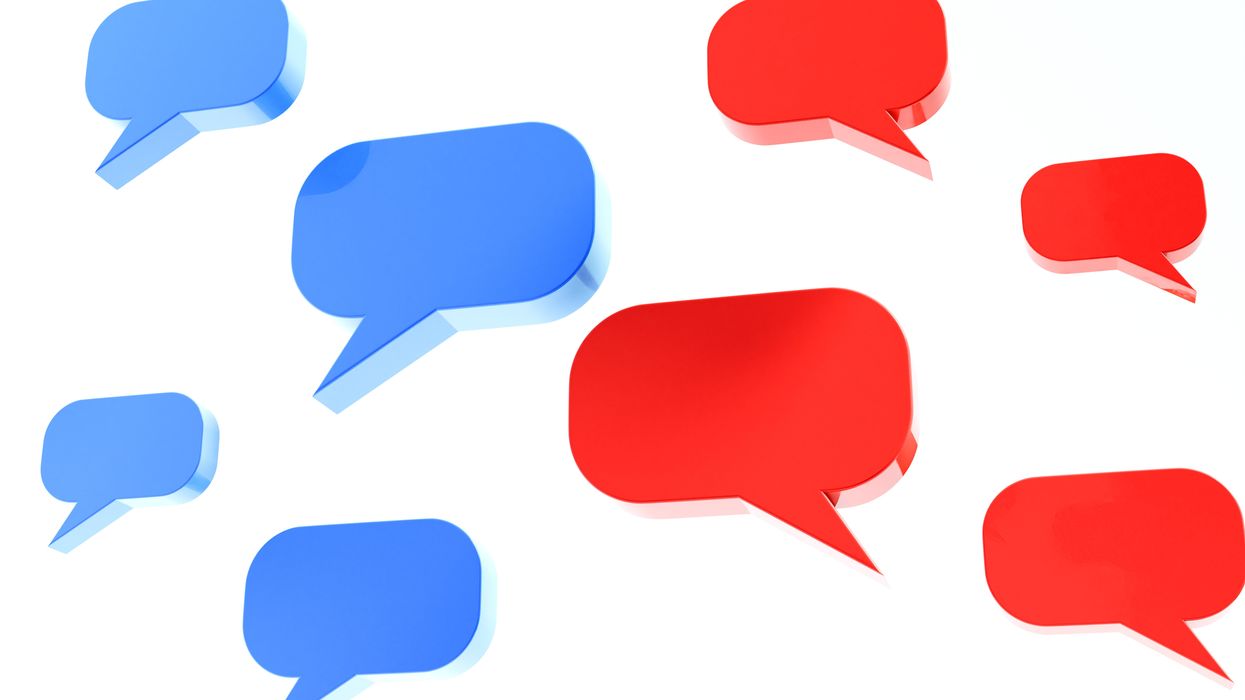Hummel is executive director of the National Coalition for Dialogue & Deliberation.
In today’s world, democratic values face challenges from rising polarization and declining trust in institutions. At a time when public discourse often feels fragmented, dialogue and deliberation have become essential tools for building trust, bridging divides and fostering community resilience. Democracy, at its core, rests on the principle that all voices deserve to be heard, regardless of political stance.
By cultivating spaces where diverse perspectives can coexist and be respected, dialogue and deliberation offer processes that reflect a broad spectrum of experiences and values.
Dialogue and Deliberation: Essential Pillars of Democracy
Democracy relies not just on voting and representation but on the strength of our connections and the ability to find common ground, especially during times of division. Dialogue and deliberation are two foundational practices that bring these connections to life, offering structured ways for individuals to engage, listen and understand one another’s unique perspectives.
Each practice plays a distinct role in fostering democratic values: Dialogue fosters empathy and mutual respect, while deliberation channels these connections into meaningful, actionable solutions. Together, they create a pathway for people to move beyond disagreement toward collaboration, navigating even the most complex challenges with integrity and inclusivity.
Dialogue allows people to share their stories, listen deeply and connect on a personal level. By nurturing understanding and empathy, dialogue helps individuals see beyond labels and stereotypes, fostering a sense of shared humanity. Through genuine listening and open exchange, dialogue builds trust among participants, creating a foundation for productive engagement.
Deliberation moves conversations toward collective action by inviting people to weigh different options, consider trade-offs and collaboratively develop solutions. This process ensures that decisions are informed, inclusive and considerate of all voices. Deliberation empowers communities to face even the most challenging topics together, transforming differences into strengths and enabling more balanced, sustainable outcomes.
In practice, dialogue and deliberation not only foster empathy and collective action but also anchor the democratic process itself. By engaging communities in open conversations and collaborative decision-making, these practices allow individuals to actively participate in shaping policies that reflect shared values and goals. This approach doesn’t just resolve immediate issues; it strengthens the core principles of democracy — self-governance, civic responsibility and inclusivity — making communities more resilient and better equipped to face future challenges.
How Dialogue and Deliberation Strengthen Democracy
Dialogue and deliberation empower communities and support a resilient democracy through:
- Building trust and bridging divides. Structured conversations create safe spaces for open dialogue, fostering trust and unity across social, political and cultural divides. By actively listening, participants find common ground and build a shared purpose.
- Promoting transparency. Dialogue and deliberation invite open discussion and transparent information-sharing, fostering accountability in public decisions.
- Collaborative problem-solving. Dialogue brings diverse perspectives together, generating innovative solutions to complex challenges.
- Encouraging civic responsibility. Meaningful conversations about community issues instill a sense of civic duty and responsibility.
- Reducing polarization. By fostering empathy and understanding, dialogue and deliberation reduce partisan hostility.
- Empowering citizens. Inclusive deliberation enables individuals to make informed choices, actively participate and take ownership of community decisions, fostering an engaged and resilient citizenship.
Democracy Is for Everyone: Bridging Ideological Divides
In these polarized times, even the term “democracy” can feel divisive. Different groups in recent years have often used it to champion their ideals while questioning the legitimacy of others, turning “democracy” into a rhetorical tool rather than a shared value. This selective framing risks overshadowing the true essence of democracy as a system designed to be inclusive and representative of all voices. At its core, democracy is for everyone, creating a foundation where diverse perspectives can coexist, engage and contribute to a shared future.
The strength of democracy lies in its ability to resonate across ideologies, fostering a system where a variety of values coexist and contribute to collective decisions.
For those who identify as conservative, democracy aligns with values like personal responsibility, individual freedoms and thoughtful engagement in governance. Dialogue and deliberation uphold these values by encouraging reasoned, respectful exchanges that allow voices to be heard and respected.
For those with liberal views, democracy embodies inclusivity, equality and empathy. Dialogue and deliberation amplify marginalized voices, fostering empathy and driving decision-making that reflects a broader social conscience. Ultimately, democracy thrives on its ability to balance diverse perspectives, creating a shared space where different ideals can shape policies that reflect the community as a whole.
NCDD’s Role in Strengthening Democracy Through Dialogue and Deliberation
The National Coalition for Dialogue & Deliberation serves as a vital convener and resource center dedicated to advancing the practices of dialogue and deliberation. Our work unites people across sectors and society to foster conversations and collaboration that strengthen democracy. Through national conferences, regular networking calls and accessible resources, we bring dialogue and deliberation to the broadest possible audience. These initiatives and tools empower individuals and organizations with essential skills for fostering inclusive, participatory environments where every voice is valued.
Democracy depends on each of us doing the hard work of listening, deliberating and acting together. Dialogue and deliberation are not only tools for democratic engagement — they are at the heart of it. In a time of increasing polarization, these practices remind us of what we can achieve when we come together, connect and collaborate.
Join us in strengthening the democratic foundation we all share by supporting NCDD. Your involvement ensures that dialogue and deliberation continue to foster a resilient, well-informed democracy where every voice has a place in shaping our collective future. Get involved today and be part of the movement that keeps democracy vibrant and inclusive for all.



















Trump & Hegseth gave Mark Kelly a huge 2028 gift